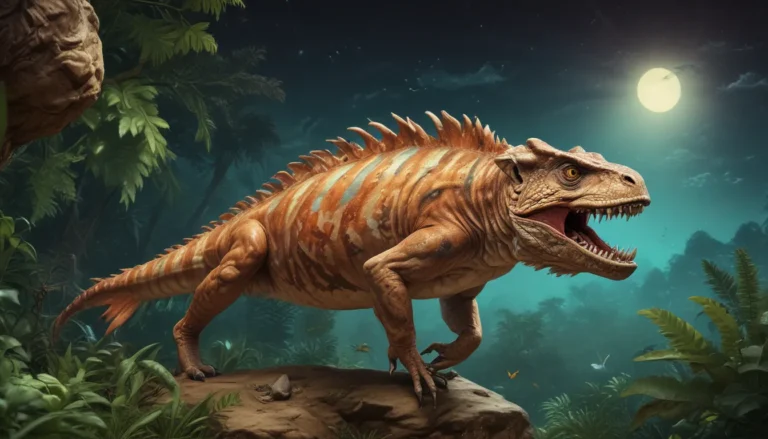A Note About Images: The images used in our articles are for illustration purposes only and may not exactly match the content. They are meant to engage readers, but the text should be relied upon for accurate information.
Nature is a magnificent tapestry of interconnected ecosystems, each teeming with diverse life forms. At the heart of this intricate web lies the concept of ecological niches, which serve as unique homes for different species, shaping biodiversity and influencing the dynamics of ecosystems. In this journey through the astonishing world of ecological niches, we will uncover fascinating facts that highlight the ingenuity and diversity of life on our planet.
Understanding Ecological Niches: The Foundations of Biodiversity
Ecological niches are like personalized habitats for organisms, encompassing where they live, what they eat, and how they interact with their surroundings. Just as individuals have distinct jobs and hobbies, animals have their own specialized places in nature. These niches not only support the survival and adaptation of species but also promote biodiversity by creating a rich tapestry of life forms within ecosystems.
The Intricate Variability of Ecological Niches
The diversity and variability of ecological niches are truly remarkable. Each species occupies a unique niche that includes its specific habitat, resource requirements, and interactions with other organisms. This variability allows for the coexistence of multiple species within the same ecosystem, each thriving in its own specialized niche.
Niche Partitioning: Fostering Harmony in Ecosystems
Niche partitioning is a phenomenon where similar species with overlapping niches evolve different traits and behaviors to reduce competition and coexist peacefully. This process not only promotes biodiversity but also allows multiple species to share the same habitat by occupying slightly different ecological niches.
The Dynamic Nature of Ecological Niches
Ecological niches are not static entities; they can change over time in response to environmental shifts, competition, and evolutionary pressures. This adaptability enables species to adjust their niche requirements and survive in the face of challenges such as climate change and the emergence of new competitors.
Keystone Species: Guardians of Ecosystem Health
Certain species, known as keystone species, play a crucial role in maintaining the health and stability of ecosystems. These species occupy unique ecological niches that have a disproportionate impact on the entire ecosystem, influencing its structure and dynamics significantly.
The Role of Ecological Niches in Speciation
Ecological niches can influence the process of speciation, leading to the emergence of new species over time. Populations of the same species may diverge and occupy different niches, resulting in the formation of distinct species—a phenomenon known as adaptive radiation. This process drives the richness of life on Earth.
Human Impact on Ecological Niches: Creating Urban Ecosystems
Human activities can create novel ecological niches that would not have existed naturally. Urban environments, for example, offer unique opportunities for species to adapt to city life, leading to the emergence of urban-adapted species and the formation of urban ecological niches.
The Versatility of Organisms: Occupying Multiple Niches
Some organisms possess the remarkable ability to occupy multiple ecological niches—a concept known as niche breadth. This adaptability allows them to exploit different resources and thrive in diverse habitats, enhancing their chances of survival in changing environments.
Influencing Evolutionary Trajectories through Ecological Niches
The ecological niche occupied by a species can profoundly shape its evolutionary trajectory. Natural selection acts on traits and behaviors that enhance an organism’s fitness within its niche, driving evolutionary changes that are specific to that particular ecological context.
Predicting Species Interactions through Ecological Niches
Understanding the ecological niches of species provides valuable insights into their interactions within ecosystems. By examining the niche requirements and preferences of different organisms, scientists can predict how species will compete, collaborate, or prey upon each other, contributing to our understanding of community dynamics.
Concluding Thoughts on Ecological Niches
The exploration of ecological niches unveils the intricate web of interactions that underpin ecosystems, shaping biodiversity and determining the distribution of species. By studying these niches, scientists gain crucial insights into the balance of nature, the impact of environmental changes, and the need for sustainable ecosystem management. Preserving and protecting our planet’s fragile ecosystems is essential to safeguarding the diverse and thriving life forms that enrich our world.
FAQs: Unlocking the Secrets of Ecological Niches
- What is an ecological niche?
-
An ecological niche refers to the specific role and position of a species within its environment, encompassing its interactions with other species, resource utilization, and necessary conditions for survival and reproduction.
-
How do organisms occupy different niches?
-
Organisms occupying different niches often possess specialized adaptations that enable them to utilize specific resources or inhabit unique habitats, minimizing competition and maximizing resource utilization within ecosystems.
-
Can ecological niches change over time?
-
Yes, ecological niches can evolve in response to environmental changes, competition, and evolutionary processes. Species can adapt and diversify to occupy new niches or modify existing ones.
-
What is the significance of studying ecological niches?
-
Studying ecological niches helps scientists understand how species interact with their environment and each other, informing conservation efforts, predicting species responses to environmental changes, and managing ecosystems effectively.
-
Are ecological niches limited to specific locations?
-
Ecological niches are not restricted to specific geographic locations and can coexist within the same ecosystem or overlap with each other, depending on available resources and species interactions.
-
Can two species occupy the same niche?
-
While uncommon, two species can occupy the same niche, leading to competition for resources. Over time, competition may result in one species outcompeting the other or niche differentiation to reduce competition.
-
How do human activities impact ecological niches?
-
Human activities such as habitat destruction, pollution, and climate change can disrupt ecological niches, altering resource availability, species interactions, and biodiversity.
-
Can ecological niches aid in species conservation?
-
Understanding the ecological niches of endangered species can support conservation efforts by identifying their specific requirements and interactions, guiding targeted habitat protection and restoration.
-
Are ecological niches interconnected?
- Yes, ecological niches are interconnected within ecosystems. Changes in one niche can have cascading effects on other niches, forming intricate ecological networks that contribute to ecosystem stability and functioning.
Dive Deeper into the World of Ecological Niches
The realm of ecological niches is vast and endlessly fascinating, offering a glimpse into the complexities of nature’s interconnected systems. Explore the astonishing variability of niches and their impact on the natural world. Delve into cutting-edge techniques like ecological niche modeling to predict species distributions and interactions. Unearth the surprising ways organisms interact within their niches, from competition to cooperation. Join us on a journey of discovery as we unravel more of nature’s incredible secrets!
A Commitment to Quality and Authenticity
Our dedication to delivering trustworthy and engaging content is paramount. Each fact on our site is contributed by real users, bringing a wealth of diverse insights and information. Our team of dedicated editors rigorously review each submission to ensure accuracy and reliability, guaranteeing that the facts we share are not only captivating but also credible. Trust in our commitment to quality and authenticity as you embark on a journey of exploration and learning with us.






